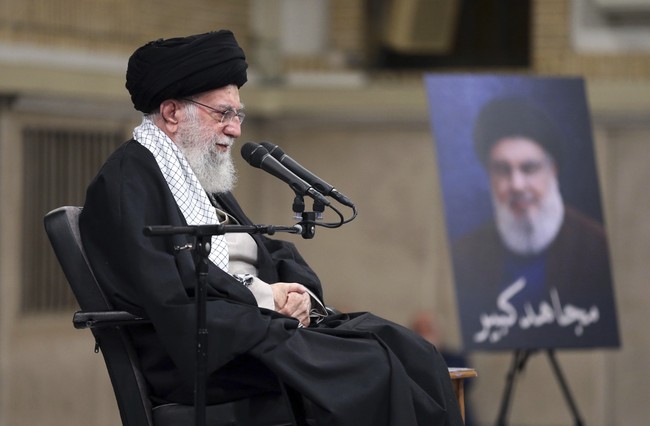California Governor Gavin Newsom has announced that if President-elect Donald Trump follows through with plans to eliminate the $7,500 electric vehicle (EV) rebate program, he will ensure that California residents are still able to access new credits.
However, Newsom’s plan would notably exclude Tesla, the state’s most popular EV manufacturer, from qualifying for these credits.
The statement comes just weeks after Newsom and his administration implemented new refinery and carbon credit regulations, which are expected to increase gas prices for Californians by as much as $1.15 per gallon.
Celebrate Trump’s Historic 2024 Victory with the Exclusive Trump 47th President Collection!
Additionally, these new regulations will force Californians with gasoline-powered vehicles to earn up to $1,000 more annually in pretax income to offset the rising fuel costs.
In a statement addressing the potential loss of federal EV tax credits, Newsom said, “We will intervene if the Trump Administration eliminates the federal tax credit, doubling down on our commitment to clean air and green jobs in California.”
Idiot California Gov. @gavinnewsom volunteers California taxpayers to pay for EV subsidies ended by Trump:
“We will intervene if the Trump administration eliminates the federal tax credit, doubling down on our commitment to clean air and green jobs in California.” … pic.twitter.com/5ux7ZMztjV
— Steve Milloy (@JunkScience) November 25, 2024
This proposal has raised concerns from some, including Tesla CEO Elon Musk, who took to his social media platform X to express his disapproval.
Musk pointed out that Tesla is the only company manufacturing EVs in California, yet Newsom’s plan excludes the company from the proposed new credits.
Musk stated, “Even though Tesla is the only company who manufactures their EVs in California, this is insane.”
Even though Tesla is the only company who manufactures their EVs in California!
This is insane. https://t.co/EhVeG2TYqT
— Elon Musk (@elonmusk) November 25, 2024
The tensions between Musk and Newsom have escalated in recent months.
Musk, who has relocated both SpaceX and X (formerly Twitter) out of California, has cited a new law signed by Newsom banning parental notification for gender change requests from K-12 students as a key factor in his decision to leave the state.
This is the final straw.
Because of this law and the many others that preceded it, attacking both families and companies, SpaceX will now move its HQ from Hawthorne, California, to Starbase, Texas. https://t.co/cpWUDgBWFe
— Elon Musk (@elonmusk) July 16, 2024
Musk’s comments reflect a growing dissatisfaction with the state’s regulatory environment, especially as it pertains to business operations.
To fund the proposed EV credits, Newsom’s office intends to rely on California’s cap-and-trade program, which requires carbon emitters to purchase credits from the state.
This program’s costs are typically passed on to consumers, leading to higher prices for gasoline, energy, and even concrete.
the pivot to car salesman wasn’t entirely unexpected, but still surprising to actually witness https://t.co/p9hYyJqtET
— Rob Pyers (@rpyers) November 26, 2024
The program generates billions of dollars annually, a portion of which is allocated to California’s $135 billion high-speed rail project, which remains a point of contention for many taxpayers.
The California high speed rail project has been a massive boondoggle:
– $100 billion over budget
– Told voters it would be finished by 2020
– Now they won’t even set a date for completionThe government should stop wasting money on this project. pic.twitter.com/UiPQXjrDFN
— Alec Stapp (@AlecStapp) November 26, 2024
The California Air Resources Board (CARB), whose voting members are largely appointed by the governor, recently approved an additional $105 billion in EV charging credits and $8 billion for hydrogen charging credits.
These credits will primarily be funded by drivers of gasoline-powered cars and diesel trucks, further pushing the cost burden onto traditional vehicle owners.
An investigation by The Center Square revealed that the push for these new credits was largely driven by electric vehicle manufacturers and companies building EV charging infrastructure.
When purchasing EV chargers, consumers often sign installation contracts that effectively give away their rights to the credits generated from fueling an EV.
These credits are typically bundled with the purchase of an EV or covered by utility and government rebates, creating ongoing revenue streams for companies collecting the credits.
As the debate over the future of EV incentives and their funding continues, Newsom’s actions underscore California’s commitment to green energy initiatives, despite growing concerns over the economic burden on residents and businesses.
With Tesla excluded from these new incentives, and the state’s increasing reliance on cap-and-trade funds, the impact of Newsom’s proposals will likely continue to be a hot topic in the coming months.
The opinions expressed by contributors and/or content partners are their own and do not necessarily reflect the views of LifeZette. Contact us for guidelines on submitting your own commentary.
Read the full article here


![Gavin Newsom Pivots To Car Salesman, Excludes Elon Musk’s Tesla From Incentives [WATCH] Gavin Newsom Pivots To Car Salesman, Excludes Elon Musk’s Tesla From Incentives [WATCH]](https://www.lifezette.com/wp-content/uploads/2024/08/2024.08.27-01.22-lifezette-66cdd3161b1e3.jpg)







![Eric Swalwell’s Defense of Deported MS-13 Member Get Shut Down by Kristi Noem [WATCH] Eric Swalwell’s Defense of Deported MS-13 Member Get Shut Down by Kristi Noem [WATCH]](https://www.lifezette.com/wp-content/uploads/2025/05/2025.05.15-12.21-lifezette-6825dc5933dd5.jpg)